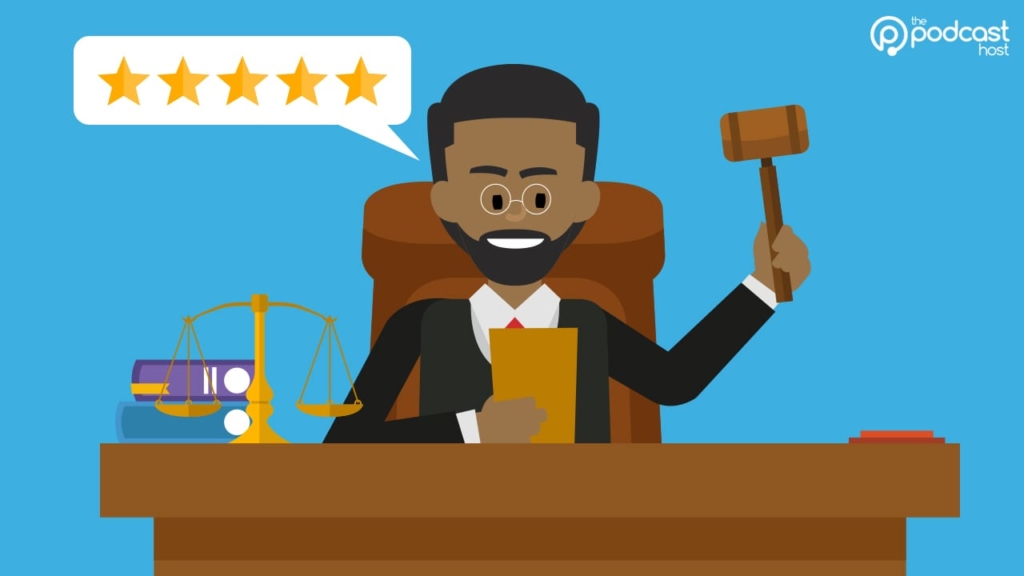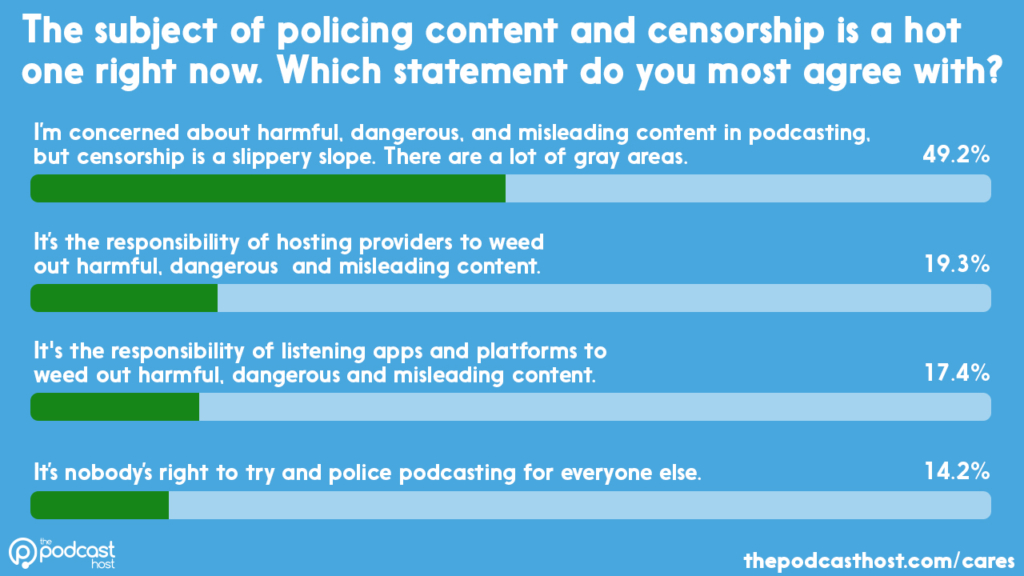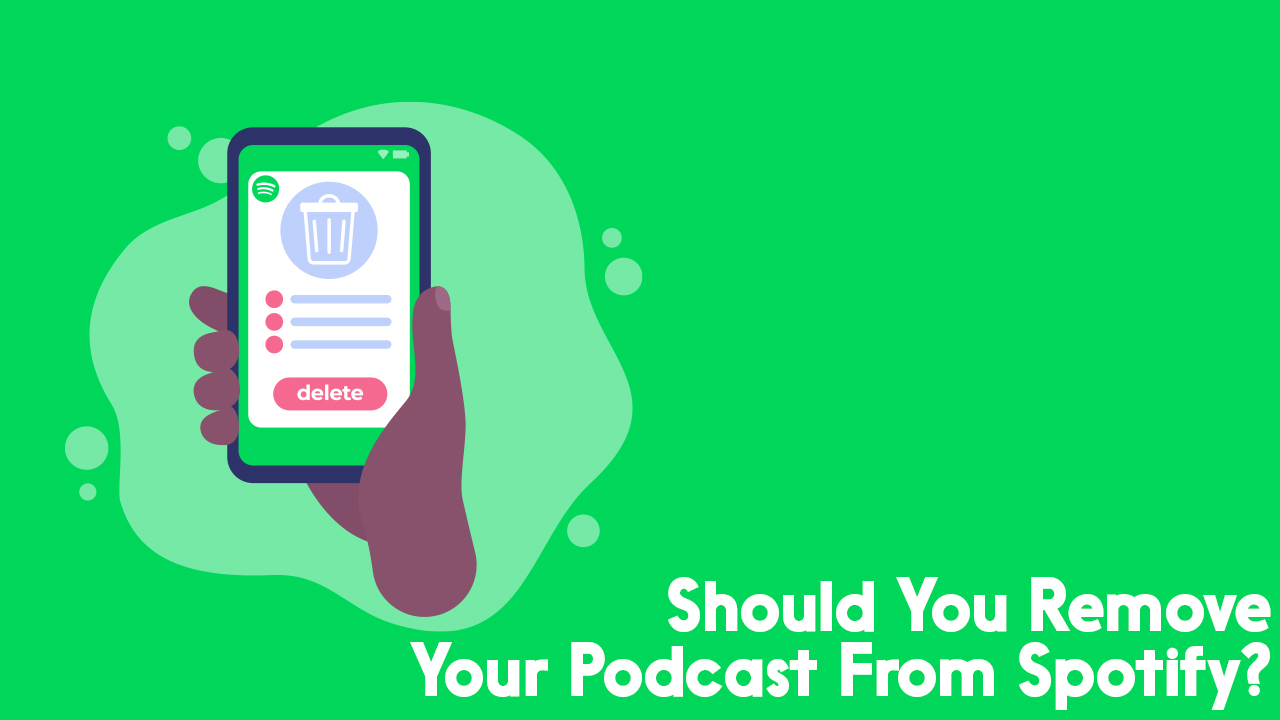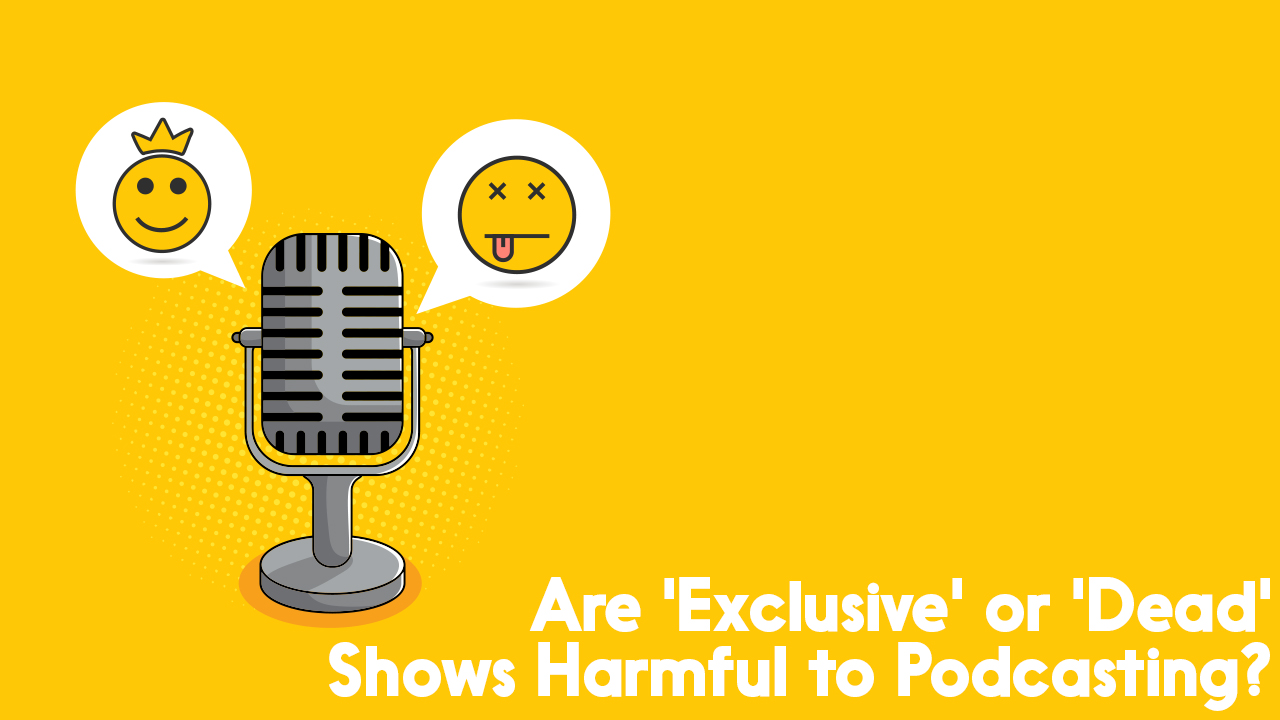Do Podcasters Want More Censorship in the Medium? Here’s the Data…

Podcasts are an uncomplicated way to get and share information. Plus, it’s simpler than ever to make a podcast. But, it’s hard to know what to say and how. It’s easy to say harmful and/or untrue things. At times, podcast directories or social media platforms have banned pods from their services. Though podcasts are generally free, the tools they use (media hosting, websites, directories) are private businesses. Some say this is censorship. Others say they violated the platform’s terms of service, they get the consequences. Podcasting is fast, convincing, easy to consume, and competitive. Do podcasters want more censorship in the medium?
The State of Podcast Censorship
Media hosts, directories and listening apps, and social media platforms can choose what kind of content they want to support and distribute. For example, YouTube, Twitter and Spotify banned Steve Bannon’s podcast when he “called for the beheading of Dr Anthony Fauci and FBI director Christopher Wray.” But, Apple left Bannon’s podcast untouched (in short: they said, “we indexed it, but it’s not our content”). A few months later, Bannon fanned the flames that motivated people to attack the US Capitol from the comfort and safety of his podcast studio.
Spotify has been known to quietly remove episodes with objectionable content from their directory. They have also said they will add a content advisory to other podcasts.
Bannon did not directly say, “Listeners, go attack the Capitol.” He used stirring language to encourage them to “impose their will.” Text and subtext are two different things. One is overt, i.e., “please give me a banana,” and one is covert, “wow, I am hungry, those bananas sure look good.” The subtext is often more powerful than text because it makes the audience fill in the blanks or read between the lines, providing a personal understanding. They own it, have done the extra work, and feel good about it.
Along with music, sound effects, text and subtext, and the power of the human voice, podcasts have a lot of ways to excite and engage the human brain. They’re so compelling, in fact, that The US Federal Trade Commission issued warnings to companies that advertise on podcasts, against using false information to sell products.
We know that:
- podcasts are convincing
- they can sell anything from socks and mattresses to faith and hope
- people will often say things which aren’t true or helpful in order to get attention
Whether you call it de-platforming or censorship, the results remain the same. The more rules there are about what podcasters can say, how, and where, the less they can say at all.

Do Podcasters Want More Censorship In The Medium?
We asked, and hundreds (537, to be exact) of podcasters answered, telling us their feelings about harmful, dangerous and/or misleading content.

- 14.2% said no one should police podcasting for others.
- 17.4% said that listening apps and directory platforms are responsible for weeding out harmful content.
- 19.3% said that hosting providers have the responsibility to weed out harmful content.
- 49.2% said they were concerned about harmful, dangerous and misleading content in podcasting, but censorship is a slippery slope.
“Harmful, dangerous or misleading content” sometimes is open to interpretation. For example, a podcast about wine could seem nice to wine drinkers and foodies, but offensive to teetotalers. Plus, there are too many podcasts for any directory, app or hosting service to listen to every single one and determine what’s constructive and honest, or what’s a ploy for attention.
Case in point: Bannon may have believed the violent things he said, but in the short term what mattered most was the advertiser dollars he’d get from clicks and downloads. Misinformation, slurs and threats aren’t just morally wrong, they’re sloppy podcasting.
What Can We Do About Bad Podcasting?
Nobody wants censorship. We do know, however, that podcasters want audience impact and connection. What matters most to a podcaster is what the audience says and does. Plus, word of mouth is one of the most convincing means of motivation.

A ban on a podcast or even a network is less meaningful than an audience statement. Podcasters want you to contact them, and tell them what you think. A carefully-worded constructive email, directly to the podcast’s production company, means more in the long run than a corporate ban. If some aspect of a podcast’s message (implicit or explicit) sincerely bothers you, then tell the creator. All you have to tell them is,
- what you heard
- when (be specific: mention the episode, release date, and when you heard it)
- why it’s a problem
- what effect it has on you
- what you want them to do in the future to change the behavior.
Don’t Feed The Beast
Audience interaction matters to podcasters. When someone is alone in a room with a microphone and a computer for too long, podcasters can forget there are real live humans on the other end of their RSS feed. The more we pay attention to podcasts that are good, and the less to podcasts that are dishonest, the more we can improve discourse in general.


